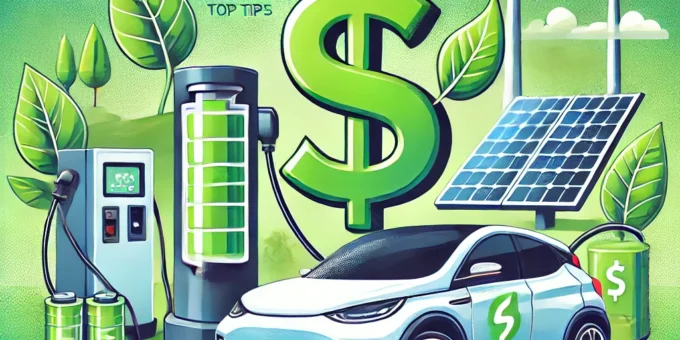
How to Save Money with Electric and Hybrid Cars: Top Tips
Switching to an electric or hybrid vehicle can be one of the smartest financial decisions you make as a driver. Not only are these vehicles better for the environment, but they can also help you save a significant amount of money over time. From lower fuel costs to tax incentives and reduced maintenance expenses, the benefits of driving electric and hybrid cars extend far beyond sustainability.
In this guide, we’ll dive into actionable tips to help you maximize savings with your electric or hybrid vehicle while enjoying an eco-friendly lifestyle.
Why Electric and Hybrid Cars Save Money
Electric and hybrid cars offer a host of cost-saving benefits that traditional gas-powered vehicles simply can’t match. Some of the most significant savings come from:
- Fuel Efficiency: EVs eliminate fuel costs entirely by running on electricity, while hybrids consume less gas thanks to their electric motor assistance.
- Tax Incentives: Many governments offer tax credits, rebates, or incentives to encourage EV and hybrid adoption.
- Lower Maintenance: Fewer moving parts and no need for oil changes reduce maintenance costs for EVs and hybrids.
When combined, these factors can save drivers thousands of dollars over the lifespan of their vehicles.
Lower Fuel Costs Compared to Gas Cars
One of the most immediate ways to save money with an electric or hybrid vehicle is through lower fuel costs.
- Electric Vehicles (EVs): Charging an EV at home typically costs less than half the price of fueling a gas-powered car. For example, if your electricity rate is $0.15 per kWh, fully charging a 60 kWh battery costs $9 and provides about 250 miles of range.
- Hybrid Cars: Hybrids combine an electric motor with a gas engine, significantly improving fuel efficiency. Many hybrids achieve over 50 miles per gallon, cutting gas expenses by 30–50%.
Tax Credits and Government Incentives
In [Year], many electric and hybrid vehicles still qualify for federal tax credits in the U.S., which can reduce the cost of purchasing a new EV by up to $7,500. Some states and local governments also offer:
- Rebates for purchasing or leasing EVs and hybrids.
- Discounts on registration fees.
- Free or reduced-cost access to public charging stations.
Tip: Check the U.S. Department of Energy’s website or your country’s official EV programs to see what incentives are available in your area.
Reduced Maintenance Costs
Electric and hybrid vehicles are cheaper to maintain because they have fewer moving parts compared to traditional gas-powered cars. For example:
- EVs don’t require oil changes, transmission fluid, or spark plugs.
- Regenerative braking systems reduce wear on brake pads.
- Hybrids typically require less frequent engine maintenance due to the electric motor’s assistance.
Charging at Home: The Most Affordable Option
Charging your EV at home is far more cost-effective than using public charging stations. To save even more:
- Install a Level 2 charger to reduce charging times.
- Use a smart charger to schedule charging during off-peak hours when electricity is cheaper.
- Consider installing solar panels to charge your EV with free, renewable energy.
Maximizing Your Car’s Battery Efficiency
Battery performance plays a crucial role in your EV or hybrid’s cost-effectiveness. Here are some tips to extend battery life:
- Avoid Overcharging: Disconnect the charger once the battery reaches 80–90% to prevent unnecessary wear.
- Maintain Optimal Temperatures: Park in the shade or a garage during hot weather and avoid extremely cold conditions when possible.
- Drive Smoothly: Sudden acceleration or aggressive driving drains the battery faster.
Eco-Driving Habits for Maximum Savings
Adopting fuel-efficient driving habits can boost your EV or hybrid’s range and lower costs:
- Drive at steady speeds and avoid rapid acceleration.
- Use regenerative braking whenever possible.
- Avoid carrying unnecessary weight in the car.
Depreciation Trends and Resale Value
While depreciation used to be a concern for EVs and hybrids, that’s changing as these vehicles become more mainstream. Popular models like the Tesla Model 3 and Toyota Prius hold their value well, making them a smart long-term investment.
Tip: Keep your vehicle in good condition and maintain service records to maximize its resale value.
Insurance Discounts for EVs and Hybrids
Many insurers offer discounts for EV and hybrid owners due to their lower risk profile. To save on insurance:
- Look for providers that specialize in green vehicles.
- Bundle your auto insurance with home or renters insurance.
- Take advantage of telematics programs that reward safe driving.